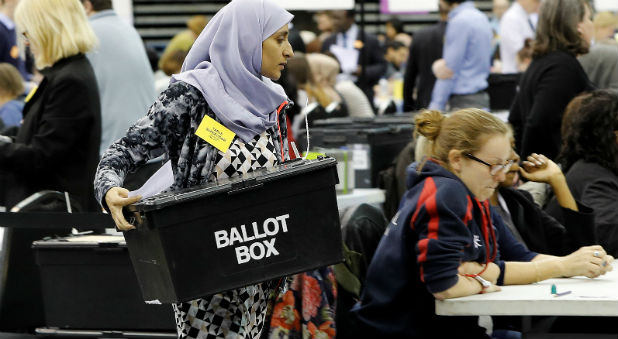One of the perils of being someone who speaks on Christianity is that I get asked to pronounce on politics. Given that the more problematic the election the more frequently I’m asked who to vote for, I find myself currently under a lot of pressure. In truth, I don’t think it’s my job to tell anybody whom to vote for, but it’s not unreasonable for me to make suggestions on how to vote.
Underlying the traditional Christian view of politics and society is the idea that all human beings and societies exist on the moral equivalent of the down escalator. If virtues are not constantly reinforced, vices will take over. And in the fervor of electioneering it seems to me that three particular virtues are so threatened that their defense is essential.
The first imperiled virtue is that of truth. Let me remind you that ‘post-truth’ was declared to be the word of the year for 2016. Building on its Jewish roots, Christianity has always upheld the idea—if sadly not always the practice—of truth as a non-negotiable absolute. The supremacy of truth is maintained for us by a God who not only is true in himself but one who judges truthfulness. Inevitably, as God has become a shadowy figure for many, so the high concept of truth is also fading. Elections in particular provide an ideal opportunity for truth to be bent or broken. Increasingly we are offered allegations that are not believed, claims that are not justified and promises that are not meant to be kept. The election-season trends towards unsubstantiated insinuations, imaginary data and downright lies need to be resisted. Voters need to constantly demand the truth, the whole truth and nothing but the truth.
The second endangered species of virtue is that of justice. I feel we live in days in which justice has not so much been marginalized as redefined. The older concept of justice used to mean the ideal of righteousness or fairness for all. Justice was an uncomfortable virtue that came with a price tag. After all, to demand justice was to risk the possibility that you personally might have to pay for it. Today’s concept of justice is very different and all too often little more than a legitimized selfishness. To say you “want justice” today is often little more than to demand more and better privileges for yourself. Yet although we may—quite rightly—fight shy of any notion of equality for all, we do need to seek for the good of more than just a few. The natural trend in societies is for the rich to get richer and the poor to get poorer, resulting in a pyramid that is increasingly unstable. That trend must be combated by the moral force of justice. In the Old Testament book of Amos, the prophet commands, ‘Let justice roll down like water, and righteousness like an ever-flowing stream!’ (Amos 5:24). We need to seek justice for those within our nation who have not been given a fair deal by society and for those beyond it who suffer the injustice of poverty and exploitation in many forms. We also need a sense of justice for posterity: We should not loot or damage our world for our wealth and leave future generations to pay the price.
Finally, can I also make a plea for the preservation of grace? Grace is the love for others. Grace is the disinfectant that stops the spread of those diseases of anger, hatred and bitterness that are so virulent at election time. Yet grace goes further: It encourages forgiveness, gentleness and courtesy. Without grace, it’s all too easy to drag political debate down into a grubby tussle in the gutter.
Are we in post-truth times? Possibly. But truth is not the only threatened virtue: At election time, neither justice or grace flourish. Those of us who are Christians must stand up for all three virtues. But even those who do not subscribe to our faith, or perhaps any other, should also consider them. If the voices of truth, justice and grace are reduced to a whisper in society, then the next sounds we hear may be the roar of the mob. {eoa}
See an error in this article?
To contact us or to submit an article






















